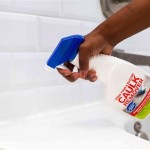What Material Should My Bathtub Be Made Of?
When choosing a bathtub, the material it's made of is an important consideration. Different materials offer different benefits and drawbacks, so it's important to weigh your options carefully before making a decision. Here's a comprehensive guide to the most common bathtub materials to help you make an informed choice:
Cast Iron
Pros: Cast iron bathtubs are highly durable, retaining heat well, and are resistant to scratches and chips. They are also relatively easy to clean and maintain.
Cons: Cast iron bathtubs are heavy and difficult to install. They can also be expensive and may require professional installation.
Acrylic
Pros: Acrylic bathtubs are lightweight, easy to install, and available in a wide range of colors and styles. They are also relatively inexpensive and easy to clean.
Cons: Acrylic bathtubs can be prone to scratches and staining. They also do not retain heat as well as cast iron or porcelain.
Porcelain
Pros: Porcelain bathtubs are durable, easy to clean, and highly resistant to scratches and stains. They also retain heat well and are available in a variety of colors and styles.
Cons: Porcelain bathtubs are heavy and can be difficult to install. They are also more expensive than other materials.
Fiberglass
Pros: Fiberglass bathtubs are lightweight, easy to install, and relatively inexpensive. They are also available in a variety of colors and styles.
Cons: Fiberglass bathtubs can be prone to scratches and cracks. They also do not retain heat as well as other materials.
Stone
Pros: Stone bathtubs are highly durable, luxurious, and retain heat well. They are also available in a variety of colors and styles.
Cons: Stone bathtubs are heavy and difficult to install. They are also the most expensive option.
Other Considerations
In addition to the material, there are other factors to consider when choosing a bathtub, such as:
- Size and shape: The size and shape of the bathtub should be appropriate for the space and your needs.
- Features: Some bathtubs come with additional features, such as jets, whirlpool functionality, or heated surfaces.
- Style: The style of the bathtub should complement the overall design of the bathroom.
- Budget: The cost of the bathtub should fit within your budget.
By considering all of these factors, you can make an informed decision about the best bathtub material for your needs.

4 Common Bathtub Materials Pros Cons What To Buy For Your Bathroom
How To Choose The Best Bathtub Material A Comparison Guide Vevano

What Bathtub Material Is In My Bathroom Maryland Tub Tile

Common Bathtub Materials Pros And Cons 2024 Badeloft

How To Tell What Your Bathtub Is Made Of Everything Explained

Common Bathtub Materials Pros And Cons 2024 Badeloft

What Are Bathtubs Made Of Bathtub Materials Pros Cons Bath Fitter

Common Bathtub Materials Pros And Cons 2024 Badeloft

How To Choose The Right Bath Panel Luna Spas

Bathtub Materials 101 Acrylic Fiberglass Porcelain Steel Inman
Related Posts








